Before a verdict like the one convicting Chauvin of murder can heal us, another killing rips the band-aid off an open wound. No, I am not just talking about the killing of 20-year-old Duante Wright literally a stone’s throw away from where George Floyd was murdered; nor am I talking about 13-year-old Adam Toledo in Chicago. I am actually talking about 15-year-old Ma’Khia Bryant who was killed in Columbus, Ohio almost simultaneously to the time when the Chauvin verdict was being handed down.
Since the start of the Chauvin trial three weeks ago, over 60 people have been killed by police in the United States. Over 1,000 people are killed by police every year. Only half of these killings are actually ruled as justifiable and yet well less than 1% of officers are ever charged or convicted. This has not stopped taxpayers from dishing out billions of dollars in misconduct settlements.
So, while people are viewing Chauvin’s murder conviction as an indictment on policing as a whole, this is clearly not the case. The Chauvin verdict was just for one killing. What people actually want is accountability for the entire system. As I mentioned to NBC News, “In court, individuals are prosecuted… Because of the over individualization of our court system, institutions are let off the hook. The court system magnifies the bad apple narrative.”
Steven Schleicher, who along with fellow prosecutor Jerry Blackwell and the rest of the team assembled by Minnesota Attorney General Keith Ellison, was masterful. But even he stated as such during closing arguments. Schleicher stated, “He (referring to Chauvin) is on trial for what he did, not who he was.” Schleicher was aiming to highlight that Chauvin lost his right to be called a cop. He was also admitting the realization that it is difficult to convict police officers of crimes, especially when a white cop does something to a Black person.
Though the Chauvin trial had all the elements to make this a slam dunk decision, the case was a litmus test on police-community relations and race relations in America. I mean if there was not a conviction in this case, what would it say about how far we still have to go as a nation? There was a myriad of video evidence, numerous in-person witnesses who saw the crime, a slew of officers testifying against Chauvin that his actions were unreasonable, a slew of medical experts, an all-star prosecution team, and a racially-diverse jury. Sadly, it takes this kind of overwhelming evidence in order to convict police officers in America, even officers who have nearly 20 misconduct complaints.
Altogether, the Chauvin trial was an exemplar. However, it remains an outlier and far from the norm of what typically happens when police use unjustifiable force and do not get convicted.
Patrick Yoes, The National President of the Fraternal Order of Police stated on CNN that “we can go one step closer to getting past this very dark day in American history.” His statement suggests that Chauvin was acting in isolation and not with three other former officers, one of whom pulled a gun on Floyd minutes earlier and another, Chauvin’s former partner, who had a series of misconduct complaints. Chauvin was not just a bad apple operating in isolation. Rather, he was part of a rotten tree in policing that allowed him to proliferate.
Bad apples are not addressed by simply having good apples. Actually, good apples become poisoned via contact with bad apples. To be specific and remove the symbolism, good officers end up bearing witness to police brutality, inadvertently participating in it themselves, or remaining silent regarding the misconduct of their fellow officers. This is because existing policies allow for the brutality to commence and remain unpenalized because state-sanctioned violence is often legal or unprosecuted under the law.
Good apples are often pushed down or pushed out of the rotten tree. My research documents that good officers who report misconduct are more likely to be demoted, transferred, and even disciplined internally for small infractions; in other words, pushed down. They are also more likely to burnout, resign, or retire early. I have found these officers are the exact ones who should become police chiefs and lead police departments. Instead, they are pushed out. This happened to Cariol Horne, a 19-year police veteran in Buffalo, who intervened as her partner put a man in a chokehold. She was fired and it took her over a decade to receive her pension. Buffalo is the same department that walked the streets in riot gear during a Black Lives Matter march in the summer of 2020, pushed 75-year old Martin Gugino to the ground, and left him bleeding on the ground. In the video, one officer actually tried to stop and help Gugino only to be halted by another officer who essentially motioned for him to fall back in line.
The blue wall of silence does not simply exist because officers are loyal to each other. The blue wall of silence exists because aiming to crack the wall can have grave consequences for someone’s livelihood. Good officers need to be protected from bad officers just like the public does. Duty to intervene laws need to ensure protections for officers who speak up and speak out against misconduct. It is important to have independent state investigation bodies and even more resources for the Department of Justice to handle reports of misconduct from officers. It is clear individual departments are not fair, equitable, or transparent enough to ensure protections for officers who speak out. Community oversight boards are also important, but they cannot simply be symbolic in nature. Rather, they need to operate like Nashville’s Community Oversight Board, which receives funding from the city and has public representation on the police misconduct board.
Finally, civilian payouts for police misconduct must shift the accountability from taxpayers to police officers and police departments. Following the path of the states of Colorado and New Mexico as well as New York City to end qualified immunity is something the public has demanded. Creating police department insurance policies and police officer liability insurance will be an important step toward further accountability.
Even during a slam dunk case, people wondered whether the ball that went into the net would actually be counted on the scoreboard. As a teenager, I remember watching the Rodney King beating being horrified. I remember the non-guilty verdict of the officers who beat him senseless and was petrified to realize that police are allowed by the state to brutalize even without a reasonable cause to do so. I realized that rather than misconduct being solely about bad apples, it was also about good apples being poisoned by a rotten tree—a rotten criminal justice system built to maintain and enforce racial differences among an overwhelmingly majority of police officers and civilians who want safety, protection, and peace.
It is clear the system must transform or else we will continue to relive the King beating, the Floyd murder, and the countless others we scroll past on social media or never bear witness to on the news but that people in local communities experience every single day. The brutality of America from gun violence to police killings must be transformed or else the pursuit of an equitable democracy will remain unachieved and a “dream deferred” rather than a reality.
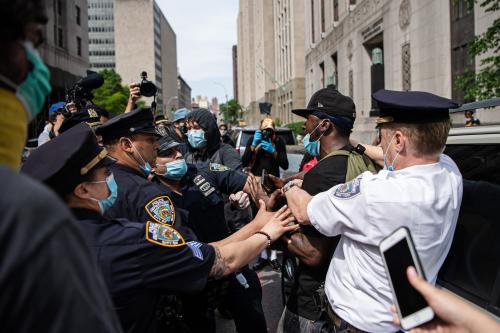
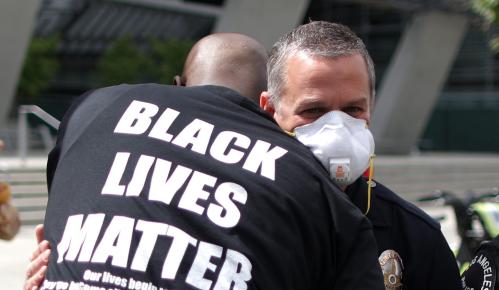
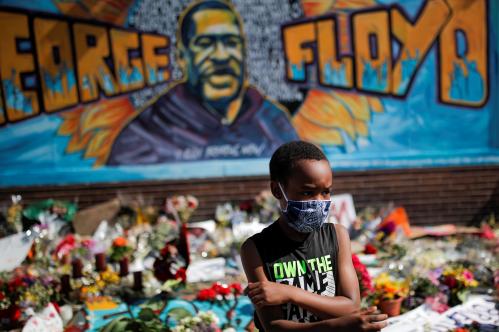

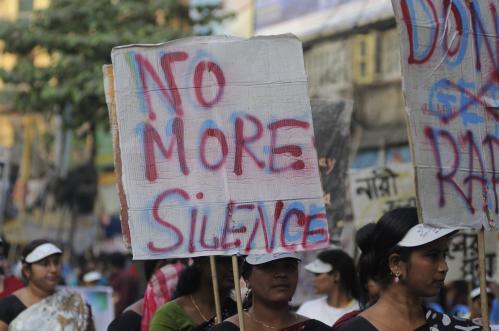
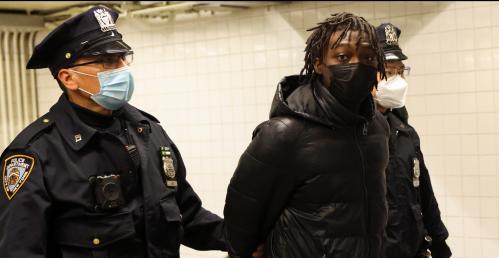

Commentary
Will the Derek Chauvin conviction for murdering George Floyd change policing?
April 21, 2021